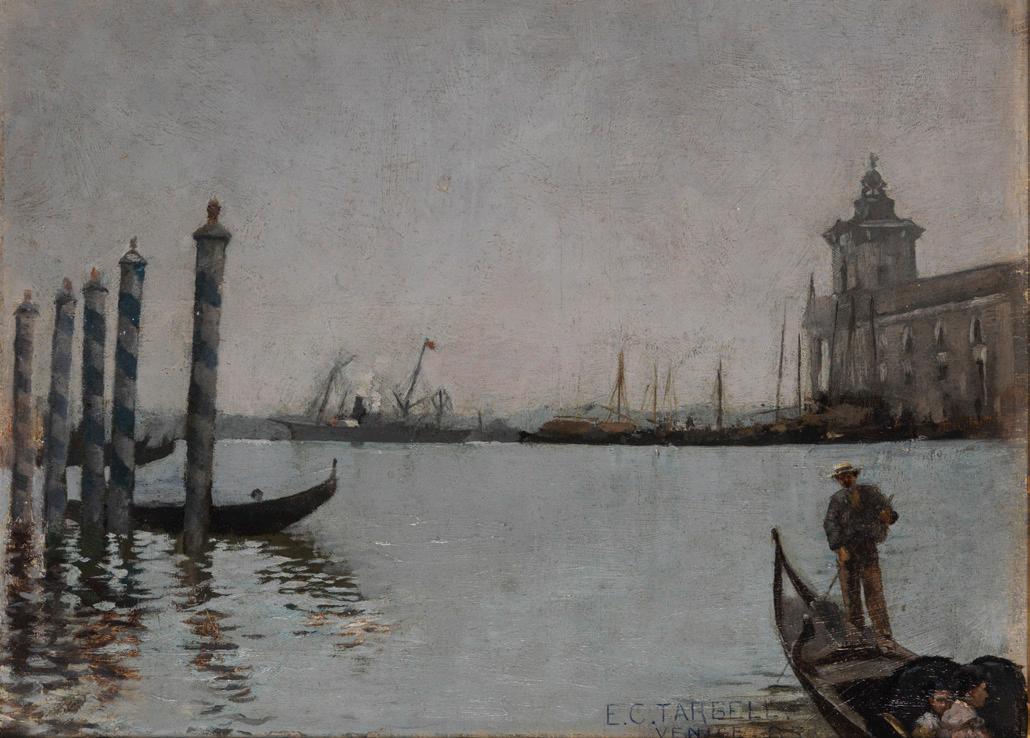
2 minute read
An Early Tarbell
141 Cambridge Street Boston, Mass. 02114-2702 Non-Profit Organization U.S. Postage PAID Boston, Massachusetts Permit No. 58621
An Early TARBELL by NANCY CARLISLE Senior Curator of Collections
Waiting. Morning Effect. Venice, 1885. Oil on panel, 19 x 22¼ inches. Museum purchase.
Born in West Groton, Massachusetts, and raised in the Dorchester section of Boston, Edmund Charles Tarbell (1862–1938) turned an early aptitude for drawing into a successful career and an enduring reputation. After studying at the Massachusetts Normal Art School [now Massachusetts College of Art and Design, or MassArt], Tarbell apprenticed at the Forbes Lithographic Company before attending the School of the Museum of Fine Arts, Boston [Museum School], where he met fellow student Frank W. Benson (1862–1951). The two would go on to train at the Académie Julian in Paris, teach at the Museum School, and become founding members of The Ten, ten painters who seceded from the Society of American Artists in order to pursue a more modern impressionistic style of painting. Fellow members of The Ten included John Henry Twachtman (1853–1902), Childe Hassam (1859–1935), Julian Alden Weir (1852–1919), Willard Metcalf (1858–1925), and Thomas Dewing (1851–1938).
While a student in Paris, a cholera outbreak sent Tarbell out of the city. After a brief trip to London he headed to Munich in an attempt to get into art school there. However, the Academy of Fine Arts, Munich, was oversubscribed, so he and fellow American artist Abbott Fuller Graves (1859–1936) went to Venice. They spent three months in a hotel on the Grand Canal with an extra room for use as a studio. Surviving drawings and paintings suggest that Tarbell spent much of his time exploring Venice and drawing its buildings as well as its people.
The figure in the foreground of Waiting. Morning Effect. Venice is almost certainly the gondolier Tarbell describes in letters home as “a regular jewel,” seeming “to know just what you want. If you don’t tell him where to go, he just paddles up and down all the small canals where he thinks you would like to sketch. If he sees you looking at a place or talking about it, he stops and waits till you get through.” It may be the patient gondolier that the “waiting” in the painting’s title refers to. Although an early example of Tarbell’s work, the painting shows his skill at rendering the dark, rich colors of early morning and his mastery at conveying the water’s glassy surface.
The painting, a recent purchase, is on view in the parlor of the Eustis Estate in Milton, Massachusetts.










